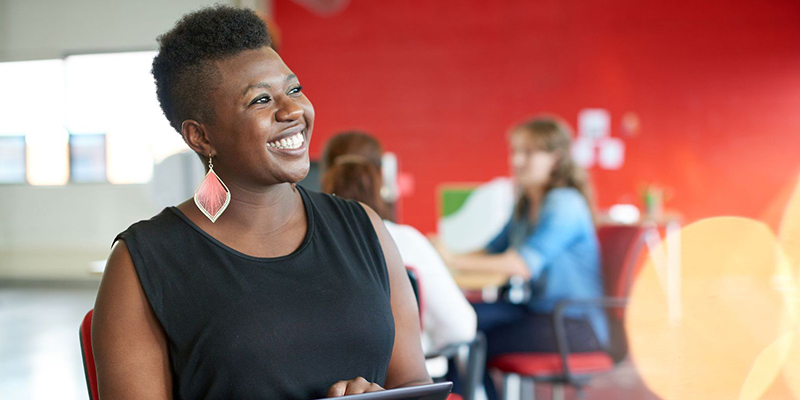| By Gintas Bradunas |
At a time when new ideas and approaches are needed the most, many of our best sources for inspiration and support have closed. From watercoolers to happy hours to meetups to conferences, these often-underappreciated sources of innovation have been largely stripped away due to COVID-19. And students feel it too. Many of the social and emotional supports and habits they relied on have also been disrupted.
Earlier this month, members of the Gale team worked to address both realities by hosting a virtual room on social and emotional earning (SEL) as part of Education Week’s virtual summit. It tackled the complex problem of post-COVID-19 SEL head-on, while also proving that innovation and inspiration need not be restricted to physical spaces.
The virtual room’s discussion centered on answering the question, “In a post-COVID-19 world, how can we effectively support the social and emotional health of students?” On hand were several guest experts on the topic: Jacob Chastain, author of Teach Me, Teacher; Grace Gallagher, executive director at the Cameron K. Gallagher Foundation; and Robert Jamison, coordinator of School Counseling Services at Virginia Beach City Public Schools. Together with participants, they discussed how to make SEL work in today’s new reality and how Gale eBooks for students and professional development can help.
Put your personal floatation device on first. Educators need to first take care of their own needs before they can be effective in the classroom, especially in today’s environment. Skipping this step is likely to result in poor outcomes.
“My campus is going all in for the welcoming back of staff—focusing on relationships, team building, counseling, and support of everyone. We can’t do our best work until we are at our best. We have to be in a good place to serve students.”
— Jacob Chastain
“We also are planning a summer online book study using [one of our Gale eBooks], The Burnout Cure: Learning to Love Teaching Again. We intend to use the strategies for additional follow-up support during the year. . . . We also open these to all staff and have been pleased to have office staff, tech support staff, paraprofessionals, principals, and APs participate.”
— Event participant
Effective SEL is about knowing your students regardless of the learning environment.
“I believe the one thing everyone should know about social and emotional learning is that it all begins with relationships and knowing your students. It isn’t enough to follow strategies, ideas, and research. Knowing the kids in your class comes first. Knowing them as people before we demand them to be students is the key.”
— Jacob Chastain
Listening is more important than ever, and we need to get creative in generating these opportunities virtually. Right now, it takes more time and deliberate effort to create connections with students.
“Encourage the students to share what they like about virtual learning and what they don’t like. Ask questions on what is working for them and where they feel lost. Ask, ‘How would you make it better?’”
— Grace Gallagher
“Neighborhoods/families with some school staff have organized scavenger hunts—both online and in person. For in person, the students were able to see each other while also maintaining social distancing. The scavenger hunt items ranged from educational/historical to playful. The online scavenger hunts were similar in terms of items, and we even used breakout rooms within the online platform for students to work in teams.”
— Robert Jamison
A growth mindset isn’t just for students. We, as educators, need to continue trying new approaches and strategies and actively seeking out professional learning opportunities and resources for our students.
“Cameron’s Camp for Wellness and Cameron’s Collection [are] amazing resource[s] for students, teachers, parents—all age-appropriate. . . . Both [eBook] collections cover a wide variety of subjects that help navigate and educate all through life’s many struggles, experiences, and challenges. . . . Our children deserve the best of good mental health care, SEL, and empowerment to be exactly the best of who they are. And for them to know they are not alone, and there is help.”
— Grace Gallagher
While we await the return to in-person conferences, this experience has shown that we’re in this together—and collectively, we can make sure all students’ needs are met regardless of circumstance.
Looking for more SEL ideas to implement at school or at home? Find practical tips here.

Meet the Author
As a K‒12 product manager at Gale, Gintas Bradunas works to leverage his past experiences as a middle school teacher and Teach For America corps member to help make products that students and educators will love. He’s an avid reader, lover of podcasts, and a believer that everything can be made better with a cup of coffee.


